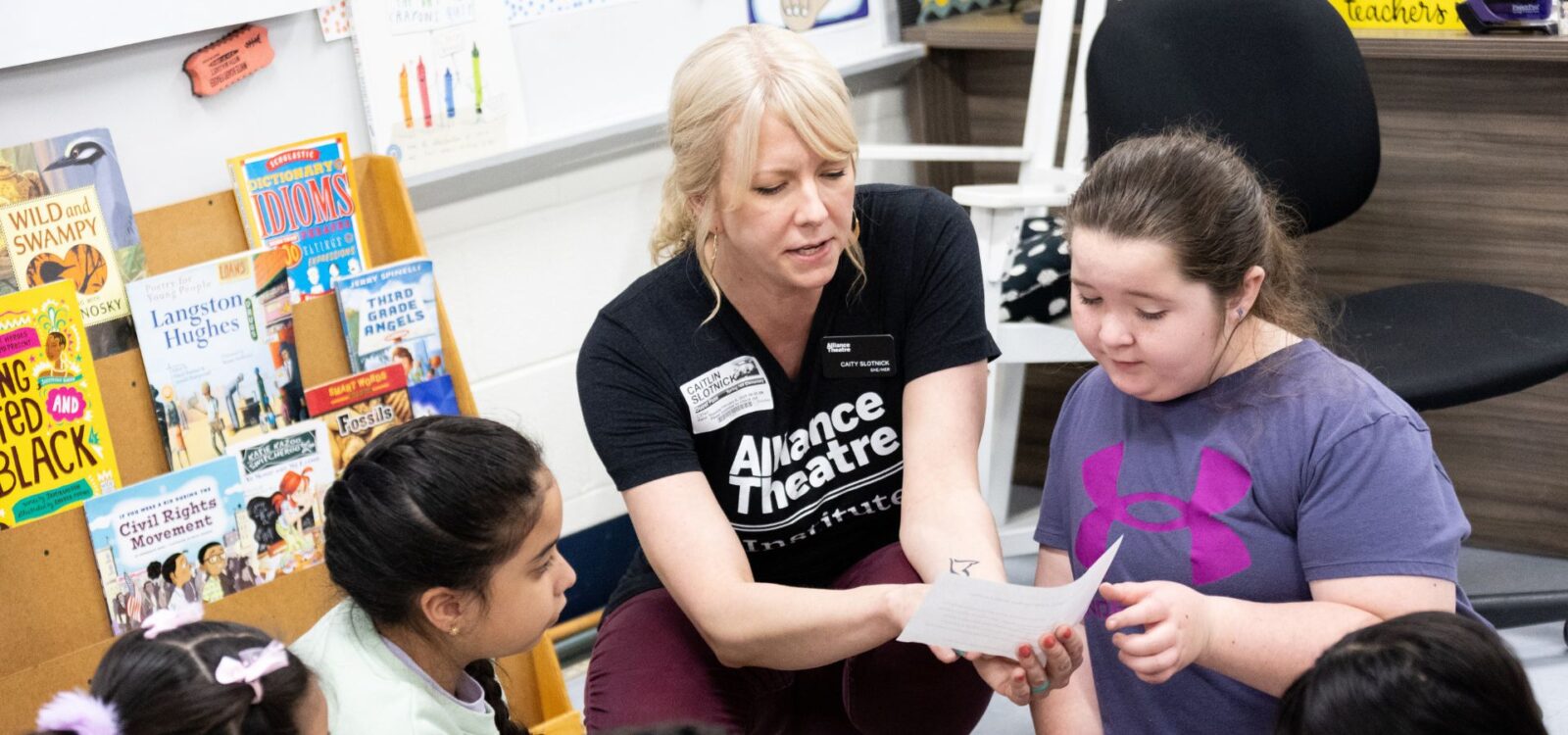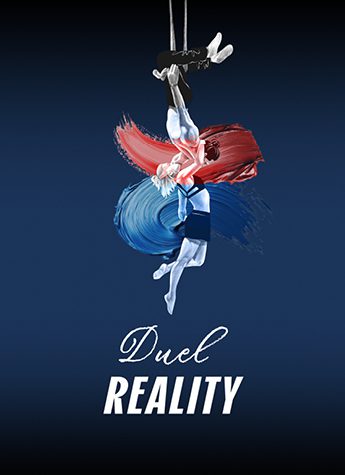- Shows &
Tickets - Classes &
Camps-
-
-
-
Interested in after-school activities for your kids? Explore After School Programs
- After School Programs
-
-
-
- Schools &
Educators-
-
- Schools & Educators
Partner with the Alliance Theatre Institute for professional learning for educators and arts-integrated or theater-based instruction for students.
-
Unique Programs
We offer unique programs that use the power of the arts to inspire students, develop skills, and create positive change in schools and communities.
- Poetry Out Loud: Georgia
- JumpStart Theatre
-
-
-
-
Tickets for Teachers is a free ticket program for educators at Alliance Theatre productions. View Program Details
- Tickets for Teachers
-
-
-
- Artists &
Community-
-
- Artists & Community
Learn more about our playwriting programs, partnerships with community organizations, and resources for artists.
-
An exploration of theater and the people who make it happen.
-
Check here for all major announcements from the theater.
-
-
- Impact &
Support-
-
- Impact & Support
Your support brings stories to life, funds community programs, and ensures more people have access to powerful theater experiences.
-
Name a Seat in the Goizueta Stage
Put your unique handprint on better tomorrows for Atlanta's young audiences.
-
-

Residencies
Program Delivery (2025-2026)
This year, all Alliance Theatre Institute programming is available to occur in-person or virtually via real-time video conference or pre-recorded videos.
Overview
Residencies provide an in-depth learning experience for students and job-embedded professional learning for teachers. In partnership with a professional teaching artist, educators co-plan and co-facilitate a standards-aligned unit of study designed to meet each classroom’s specific goals.
An in-person residency typically includes: (1) Orientation, (3-4) Planning Meetings, (10-12) Classroom Sessions, and (1) optional Culminating Event. Virtual residencies can be modified to include fewer (5-6) Classroom Sessions delivered through real-time video conferencing or pre-recorded videos. Educators may elect to add an Instructional Coaching component to extend the program by (2-4) Planning Meetings or Classroom Sessions to allow further time for independent practice and feedback.
Residency Structure
Orientation
An Alliance Theatre Institute teaching artist and program administrator meet with participating teachers and school administrators at a program orientation, which occurs one time for approximately 1-4 hours. They discuss arts-integrated instruction, identify standards of focus, participate in a sample lesson, plan the co-teaching model, and set the residency schedule. An orientation is recommended when a teacher is entirely new to the Alliance Theatre Institute or a residency program.
Planning Meetings
Throughout the residency, the teaching artist and teacher meet 3-4 times to plan remaining residency lessons. These meetings occur during the teacher’s prep period or after school. Additionally, the teaching artist and teacher regularly communicate about the residency’s progress, as needed.
Classroom Sessions
The teaching artist co-facilitates 10-12 lessons with the classroom teacher. Sessions may be implemented once a week or with a higher frequency (i.e. 2-3 times a week), depending on the school’s preferences and the teaching artist’s availability. Georgia Wolf Trap sessions are 30 minutes in length with a 15 minute debrief. All other residency programs are 45-75-minute sessions.
Culminating Event (Optional)
Teachers have the option to add a culminating event to the end of the residency, in which students share what they have learned with other classes, administrators, and/or their families.
Field Trip (Optional)
Teachers may elect to bring their students on a field trip to an Alliance Theatre production.
Instructional Coaching (Optional)
Teachers may elect to add an Instructional Coaching component to extend the residency program by (2-4) Planning Meetings or Classroom Sessions to allow further time for independent practice and feedback.
Programs
Early Childhood
- Georgia Wolf Trap Baby ArtsPlay™, infant and toddlers (ages 0-3)
- Georgia Wolf Trap Early Learning Through the Arts, Preschool, Pre-K, Kindergarten
Elementary School
- smART stART, Grade 1
- Historical Figures Come to Life, Grades 1-5
- Drama Partners, Grades 2-5
- Dramaturgy by Students, Grades 2-5
Middle and High School
- Historical Figures Come to Life, Grades 6-8
- Musical Theater, Grades 6-12
- Digital Storytelling, Grades 6-12
- Dramaturgy by Students, Grades 6-12
- Improv, Grades 6-12
- Process Drama, Grades 6-12
- Slam Poetry, Grades 6-12
- Musical Theater Composition, Grade 6-12
- Playwriting, Grades 9-12
- Strategic Storytelling, Grades 9-12
- Working Parts: Theater Production, Grades 6-12
Please note this list includes suggested grade levels. Residency programs can be modified up or down to accommodate school needs.
Find Funding for Residency Programs
The Alliance Theatre Institute understands that schools may face budget limitations for residencies, workshops, and professional learning events.

Come Curious. Leave Changed.
Join us for transformative theater that speaks to the heart of Atlanta.












